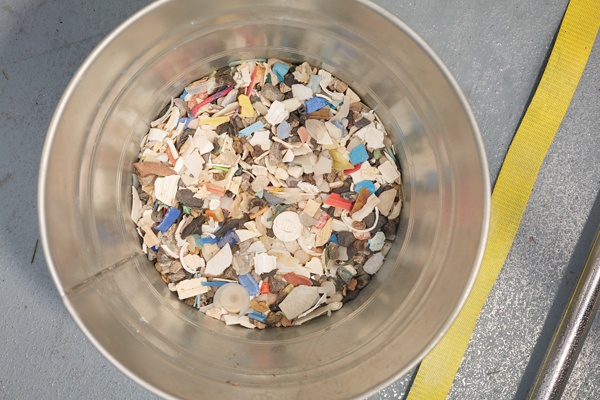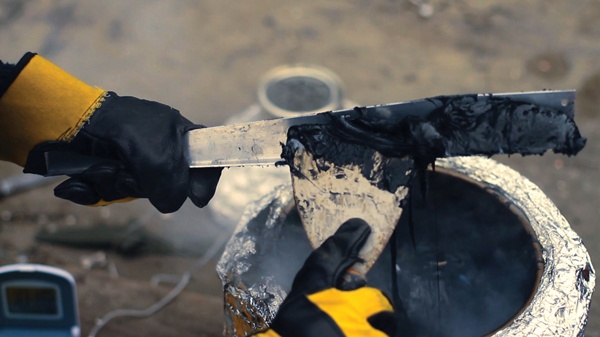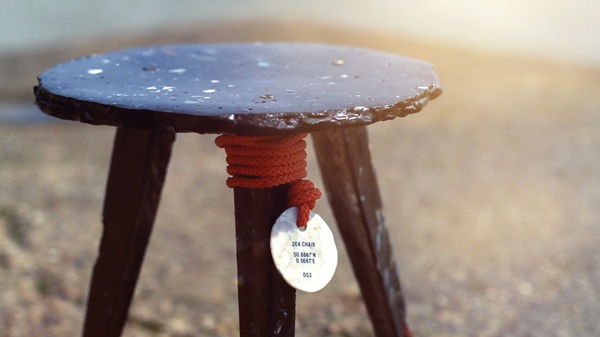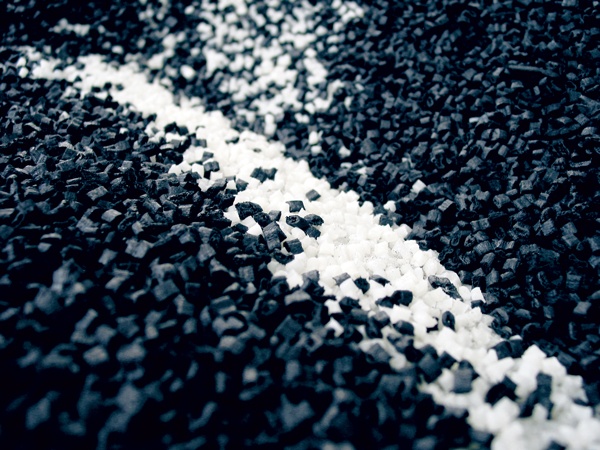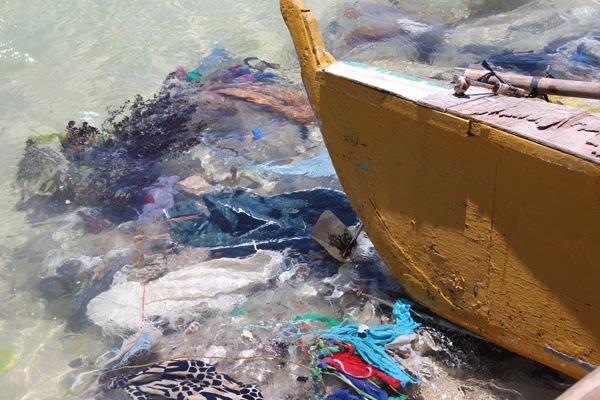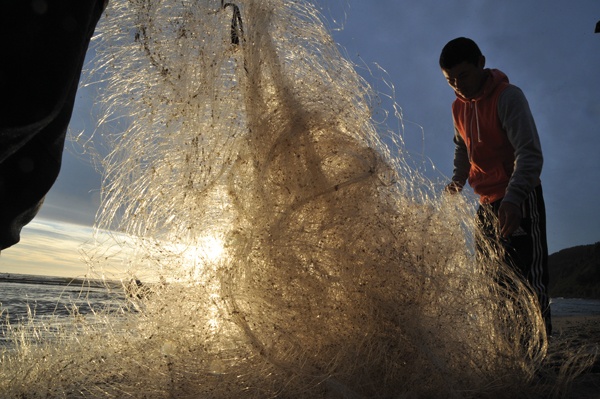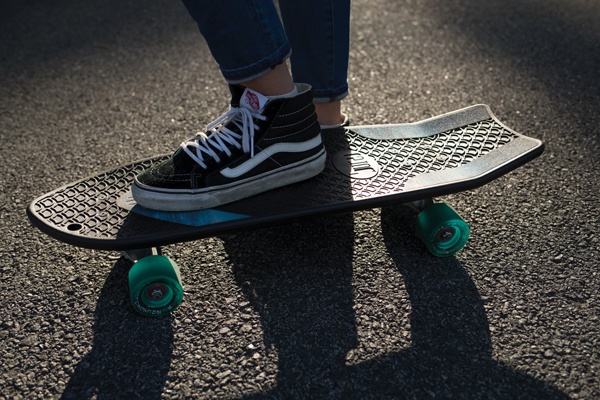Six products making the most of plastic ocean waste
With predictions that there could be more plastic than fish in the ocean by 2050, and at least 150 million tonnes of the stuff already polluting our seas, it’s clear something must be done. They may only represent a drop in the ocean (sorry!), but here are some companies creating products from ocean waste. Research by Elena Holmes
Sea Chair
Designed to recycle ocean plastic on board fishing vessels, the ‘Sea Chair’ was made in collaboration with local fishermen and presented at the Royal College of Art. Studio Swine, which developed the idea, has even released an open-source manual that will allow anyone to use plastic caught in fishing nets or found washed up on shore to make the chair: all they have to do is chop it into small bits, melt it in a DIY furnace, and then form the resulting molten mixture into a seat and three legs (using flat slabs to form the seat and folded aluminium scrap to mold the legs), before cooling the bits in seawater and then assembling.
Recycled swimwear
The ECONYL reclaiming programme was established by the Aquafil Group to recover plastic waste worldwide (see Resource 74). Nylon waste is collected and sent to the ECONYL waste treatment centre in Ajdovščina, Slovenia, where nylon fabrics at the end of their lifecycle, including used fishing nets, are collected. The polymers produced from the recycling process are processed into textile yarn, which are used in the creation of items such as swimwear, like the Divesangha rash guard.
Beach hut
Singapore-based Spark Architects has created a beach hut made from discarded plastic collected from the beaches and seas of South East Asia. The prototype hut for Singapore’s East Coast Park is intended to animate the shoreline and provide rentable occasional accommodation, whilst educating the public about the problems caused by dumping plastic into the sea.
Recycled shoe
Adidas collaborated with Parley for the Oceans, an organisation that raises awareness about the environmental destruction of the oceans, to create a trainer made from recycled plastic ocean waste. The running shoe is constructed from plastic collected from coastal areas in the Maldives, as well as material sourced from illegal deep-sea fishing nets known as ‘gillnets’. In recent weeks the partnership has also launched football kits for Real Madrid and Bayern Munich made out of recovered ocean plastic.

Fishing net carpets
The Net-Works project from carpet tile business Interface and the Zoological Society of London (ZSL) uses discarded fishing nets that could otherwise harm wildlife to make carpet. It enables fishing communities in developing countries to sell waste nets back into the global supply chain. The programme receives a source of fully-recyclable nylon for carpet tile production, and the local community receives long-term incentives to protect their natural environment, and a valuable source of additional income.
Ocean plastic skateboard
Designer and manufacturer Bureo was formed to find solutions for the growing issue of ocean plastic pollution, and founded ‘Net Positiva’, a fishnet collection and recycling programme combating the impact of discarded fishing nets. Bureo gathers fishnet waste off the Chilean coastline, which is then shredded, melted and remolded into a customised skateboard design.








